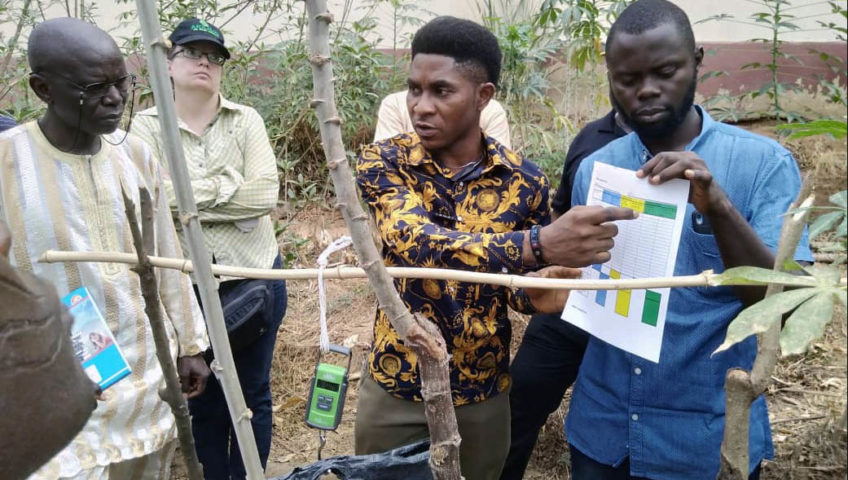ACAI project uses capacity building activities for the project partners as part of the scaling strategy for the AKILIMO tools to reach a wider audience within the cassava growing areas. Through training of trainers (ToTs), representatives from the partnering organizations’ extension network are given trainings on the practical use of the AKILIMO tools, methods of how train others and basic practices to apply in cassava farming.
The ToTs are the foundation for the subsequent scaling activities to influence the adoption of the AKILIMO tools and facilitate their use at extension agent and farmer levels. Beginning late February, IITA agronomists led by ACAI project coordinator Christine Kreye and Stefan Hauser have carried out series of trainings in Anambra, Oyo and Ogun states in Nigeria for partners involved in the dissemination of AKILIMO.
In Anambra, ACAI team trained participants on how to interpret AKILIMO recommendations from printable guides, maps and the accompanying tables. The training covered the use of AKILIMO recommendation for fertilizer application in cassava and intercropping cassava with maize. Participating organizations were the Sasakawa Africa Association (SG2000), Notore, Psaltry and FUNAAB which is one of ACAI’s research partners in the NARS. The NARS partners, FUNAAB and NRCRI, backstop ACAI’s partner organizations in step-down trainings to their extension agents.
Meanwhile ACAI Scaling Specialist Thompson Ogunsanmi on the other hand organized ToTs on effective dissemination strategies in Edo and Oyo States with Extension Agents and State Coordinators of Oyo State Cassava Growers’ Association (OYSCGA) in Oyo, and Psaltry International Limited, SG2000 and Notore Chemical Industries Limited in Edo. Participants were trained on how to carry out step down training to field extension agents and farmers using ACAI developed training tools including training videos, fertilizer rates flyers and farmers worksheets. Saburi Adekunbi was also involved in handling the Monitoring, Evaluation and Learning (MEL) aspect of the training
The trainings in Oyo and Ogun states included the AKILIMO recommendations for applying the best agronomic practices and scheduled planting. These recommendations help farmer plan to plant and harvest their cassava during seasons improve the quality of starch and promise better market prices. According to Christine Kreye the trainings have also provided a platform for partners to examine the approaches proposed by ACAI and offer suggestions on improving the process. “This is a participatory and inclusive process; we are sharing knowledge from different backgrounds then agree on the best way to apply AKILIMO recommendations as the way forward.” Said Christine.
The trainings have strongly featured good agronomic practices that are standard in order to experience full benefits of any AKILIMO recommendation. After the training, partners are expected the carry out step down trainings for farmers and cassava producers within their domains.
Source: AKILIMO UPDATES

